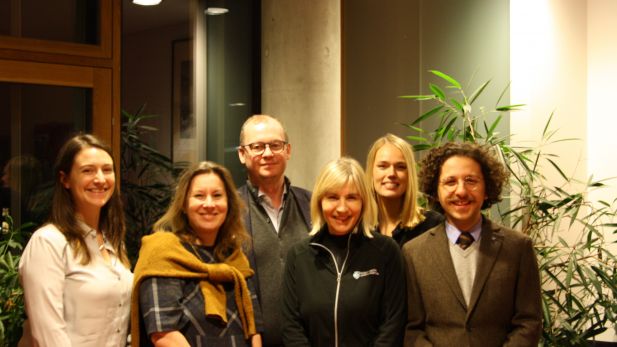Risk and Uncertainty
About the Research Project
Social Science and in particular business economics and management has long been interested in understanding individuals’ behaviors when faced with risk and ambiguity/uncertainty given professional positions/careers. And many prior studies have found that individuals with certain professional careers are substantial more likely to make choices characterized by risk/uncertainty/ambiguity than individuals in other professional careers. Even so, we know relatively little about the differences in cognitive processing associated with these choices across different professional careers.
This project seeks to disentangle whether individuals with given professional careers perceive or cognitively process risk and uncertainty/ambiguity differently than comparable others that are not in those professional careers. We already know that some individuals in specific professions select into risky and ambiguous/uncertain settings more often than others. But we do not know if it is because they do not perceive the risk and ambiguity/uncertainty, whether they have lower aversion against risk and ambiguity/uncertainty or if they over-confidently believe they are able to circumvent risk and ambiguity/uncertainty. In a collaborative project involving Copenhagen Business School (CBS) and the Neuro-biological Research Unit (NRU), the team hope to be able to unravel this conundrum and offer new insights getting us closer to an understanding of differences in economic behaviors across groups of individuals separated by professional career paths.
Drawing on fMRI scanning and neuroscience the group specifically pursue a project which entails running experiments (Money Games) while tracking blood flows in sections of the brain which has been identified as those associated with risk and ambiguity/uncertainty. We enroll carefully selected groups of individuals across professional careers to the experiment. By tracking the brain activity in these areas during scenarios characterized by risk and ambiguity/uncertainty, we seek to answer the above-mentioned research question.
Duration: July 2017 - June 2020
Data Collection and Ethics
Pursuing a research design involving fMRI analysis involves multiple steps in terms of data collection prior to the formal fMRI study. In particular, the project will build a repository of 1200 potential respondents across different professional careers. Each of these subjects will be asked to answer a survey which is used to map their profiles and confirm their professional careers. Among respondents, we carefully select a smaller group that proves suitable for being used in the comparable fMRI study focusing on cognitive processing under risk and ambiguity/uncertainty.
In addition, the research design demands careful attention to ethical standards that needs to be in place before and during the study. The research group has meticulously been working to adhere to the highest standards in this respect. This is in particular done based on the extensive experience at NRU in carrying out such studies. We are confident that all the regulatory conditions are met for carrying out the study.
Team
Principal Investigators:
Gitte Moos Knudsen (Neuro Biological Research Unit)
Toke Reichstein (Copenhagen Business School)
Associated faculty:
Johannes Björkstrand (Neuro Biological Research Unit)
Orsola Garofalo (Copenhagen Business School)
Dea S. Stenbæk (Neuro Biological Research Unit)
Valentina Tartari (Copenhagen Business School)
Giulio Zichella (Copenhagen Business School)
Nora Haman (Copenhagen Business School)
Funding
Cross disciplinary grant
Independent Research Fund Denmark, the Social Science Section
Further information
Please contact Toke Reichstein, tre.si@cbs.dk.
